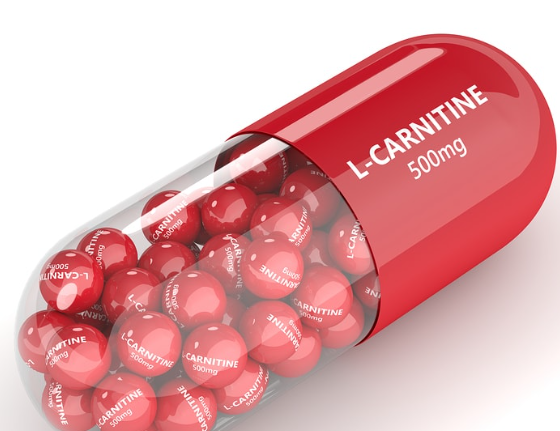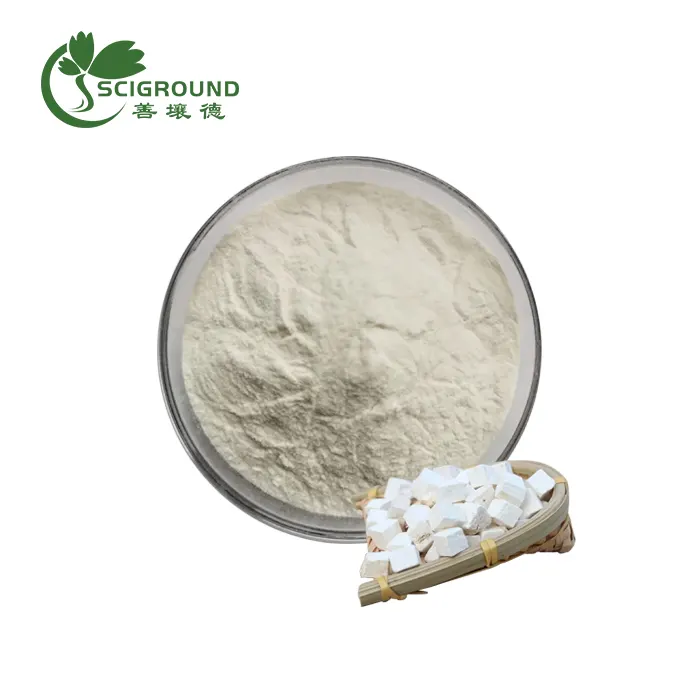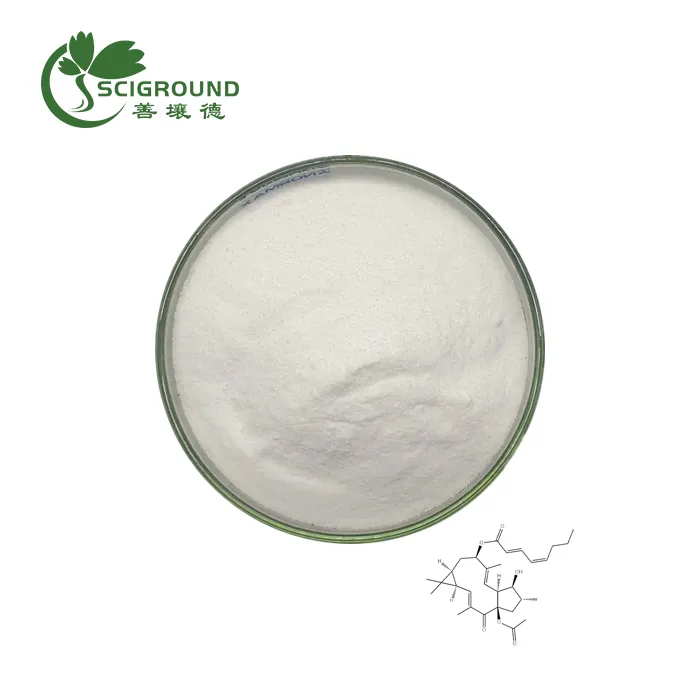When to take l-carnitine
What Is L-Carnitine?
L-carnitine is a naturally occurring amino acid derivative that is crucial for the body's ability to produce energy. It is produced from lysine and methionine in the liver and kidneys. Transporting fatty acids into the mitochondria, where they may be oxidized to produce energy, is the major job of L-carnitine. Acetyl-L-carnitine, propionyl-L-carnitine, and L-carnitine L-tartrate are all supplement formulations. They offer improved bioavailability.
Red meat, chicken, fish, dairy products, asparagus, avocado, and whole wheat are a few examples of foods that are high in bulk l carnitine. However, the human body produces up to 75% of the carnitine that is stored. Supplementation may be helpful for people with genetic diseases, malnutrition, cirrhosis, kidney disease, or other conditions that cause deficiencies.

What Does L-Carnitine Do?
Extensive research on L-carnitine shows it has wide-ranging effects in the body:
Promotes fat burning and weight loss - Shuttles fatty acids to be burned as energy.
Improves exercise performance - Delays fatigue and speeds recovery.
Enhances cognitive function - Acetyl-L-carnitine may benefit memory and focus.
Supports heart health - Improves blood flow and provides protective benefits.
Manages PCOS - Helps restore menstrual cycles and fertility.
Increases sperm health and motility - Boosts male reproductive capacity.
Lowers blood sugar - Makes cells more insulin sensitive.
Alleviates neuropathic pain - Acetyl-L-carnitine provides nerve benefits.
Protects kidneys - Shows promise for treatment of kidney disease.
Enhances wound healing - Better survival of skin flap transplants seen in research.
Improves circadian rhythms and sleep quality - Levels show daily oscillations.
However, the research is mixed at times, with greater effects seen in those who are deficient or have specific health conditions. Overall, L-carnitine remains a safe and effective supplement.
How to Take L-Carnitine?
L-carnitine bulk is available in various supplemental forms:
Capsules - 250-500mg once or twice daily is commonly used.
Liquid extracts - 1-3 tsp per day.
Powder - Add 1⁄2 to 1 tsp to smoothies, shakes or water.
Multi-ingredient formulas - Follow dosage instructions.
Injections - Given under medical supervision for deficiency treatment.
The standard supplemental dose ranges from 500-2000mg daily. Start low and gradually increase over 2-4 weeks to assess tolerance. Take with food to enhance absorption and minimize potential stomach upset.
Timing and pairing with carbohydrates can further optimize results as we’ll discuss next.

How Long to Take L-Carnitine?
There is no universal recommended duration for taking L-carnitine. Effects may become noticeable within 2-4 weeks with consistent use. For certain conditions like PCOS, male infertility, cognitive decline, and kidney disease, remaining on L-carnitine long-term under medical supervision may be helpful.
For athletes and bodybuilders, cycling l carnitine bulk for 8-12 weeks alongside training, then taking a 1 month break helps avoid adaption. This on and off protocol maintains effectiveness.
Listen to your body over time. If benefits seem to wane, take a break from L-carnitine or try a different form such as acetyl-L-carnitine for nerve regeneration and mental boosts.
Should I Cycle L-Carnitine?
Cycling wholesale carnitine involves using it consistently for a period of time, then taking a break from supplementation, and starting again. Reasons you may want to cycle L-carnitine include:
Avoiding plateauing effects or adaptation over months of daily use.
Allowing the body to synthesize more on its own through endogenous production.
Enhancing effectiveness by alternating forms, for example acetyl-L-carnitine and L-carnitine L-tartrate.
Providing a break to refuel stores of carnitine.
Preventing possible dependency with long-term supplementation.
Utilizing strategic timing only for specific training cycles or targeted needs.
Some find benefits are sustained even during off cycles due to enhanced endogenous levels. Work with a knowledgeable practitioner to determine if cycling may be advantageous for your individual needs and health goals.
When to Take L-Carnitine for Fat Loss?
Research suggests bulk l-carnitine’s fat burning effects may be maximized by proper timing around activity and meals:
30 minutes before aerobic exercise - Enhances capacity to burn fat during training.
Right before a workout - Provides energy, delays fatigue.
During exercise - Some studies show burning an extra 200 calories.
Immediately post-workout - Allows muscles to uptake carnitine for recovery.
Early in the morning - Increases insulin sensitivity on an empty stomach.
Between meals - Facilitates fat metabolism in a fasted state.
Before high carb meals - Shuttles carbs toward glycogen stores rather than fat.
Strategically supplementing around physical activity and meal composition allows L-carnitine to exert maximal fat loss effects in the body.
When to Take L-Carnitine for Bodybuilding?
For enhancing muscular development, strength, power, and workout performance, here is the ideal L-carnitine timing:
Pre-workout - Boosts nitric oxide for the “pump”, energy, and focus.
During workout - Provides fatigue-fighting effects.
Right after a workout - Accelerates recovery and replenishes carnitine stores.
Morning on non-workout days - Insulin sensitizing effects promote anabolism.
Before high carb/protein meals - Improves shuttling of nutrients into muscle tissues.
In the evening - Repairs muscle damage from day’s workouts during sleep.
Pairing bulk carnitine with pre or post-workout shakes and meals containing carbs/protein can further boost benefits for muscle building.
When to Take L-Carnitine for PCOS?
For women with polycystic ovarian syndrome (PCOS), consistent L-carnitine supplementation taken strategically may provide advantages:
First thing in the morning - Regulates blood sugar and insulin levels for the day.
Before aerobic exercise - Enhances fat burning effects.
Between meals - Facilitates fat metabolism.
Before high carb meals - Helps prevent fat storage and shuttle carbs into cells.
Before bed - May improve overnight fat metabolism.
Taking L-carnitine consistently for several months may help manage PCOS symptoms like infertility, irregular periods, hirsutism, weight gain, and insulin resistance. Consult your physician and take as directed.

Should I Take L-Carnitine in the Morning or Evening?
Research has shown benefits to taking L-carnitine at different times. Consider your goals:
Morning
Raises insulin sensitivity and glucose uptake first thing
Provides sustained focus, alertness, and concentration
Fuels your body for day’s activity and workouts
Maximizes fat burning when taken before morning cardio
Evening
Allows muscles to uptake carnitine overnight for repair and growth
May improve circadian rhythms and sleep quality
Provides sustained release of acetyl-L-carnitine for nerve regeneration
To optimize results, take half your daily dose in the morning and the other half in the evening. This provides all-day effects.
Do You Take Carnitine on an Empty Stomach?
While L-carnitine can be taken with or without food, there are advantages to taking on an empty stomach:
Maximizes shuttling of fatty acids to be burned for energy.
Raises insulin sensitivity for improved blood sugar control.
Avoids interfering with nutrient absorption from a meal.
However, take it with just a small protein source if it causes stomach upset for you on an empty stomach. Additionally, some forms like acetyl-L-carnitine are absorbed well when taken with food.

How to Use L-Carnitine for Best Results
To use L-carnitine supplements most effectively:
Choose the right form - Acetyl, propionyl, or L-carnitine L-tartrate
Take alongside diet and exercise for optimal effects
Use carbohydrate/protein pairing strategically
Cycle dosage and types to avoid adaptation
Split dose into smaller servings 2-3x daily
Start low and gradually increase dosage
Assess your individual tolerance and needs
Remain under medical supervision for certain conditions
Following proper protocols tailored to your health goals, activity levels, and individual physiology will help you experience the most benefits from L-carnitine supplementation.
Should I Take L-Carnitine on an Empty Stomach or With Carbs?
The best time to take bulk L-carnitine depends on the targeted benefits:
Empty Stomach
Maximizes potential for fat burning
Increases insulin sensitivity
Avoids nutrient absorption interference
With Carbohydrates
Shuttles carbs/fuel into muscle cells
Provides energy for intense training
Enhances workout recovery
Take on an empty stomach when looking to specifically promote fat metabolism. Take with carbs when seeking to deliver nutrients into cells efficiently.
Alter timing strategically around activity, meals, and goals. Work closely with your doctor to tailor protocol to your needs.
To place an order for L-carnitine powder, kindly reach out to Sciground at info@scigroundbio.com.
References:
[1] Villani RG, Gannon J, Self M, Rich PA. L-Carnitine supplementation combined with aerobic training does not promote weight loss in moderately obese women. Int J Sport Nutr Exerc Metab. 2000 Jun;10(2):199-207. doi: 10.1123/ijsnem.10.2.199. PMID: 10898854.
[2] Broad EM, Maughan RJ, Galloway SD. Effects of four weeks L-Carnitine L-tartrate ingestion on substrate utilization during prolonged exercise. Int J Sport Nutr Exerc Metab. 2005 Dec;15(6):665-79. doi: 10.1123/ijsnem.15.6.665. PMID: 16484711.
[3] Villani RG, Gannon J, Self M, Rich PA. L-Carnitine supplementation combined with aerobic training does not promote weight loss in moderately obese women. Int J Sport Nutr Exerc Metab. 2000 Jun;10(2):199-207. doi: 10.1123/ijsnem.10.2.199. PMID: 10898854.
[4] Broad EM, Maughan RJ, Galloway SD. Effects of four weeks L-Carnitine L-tartrate ingestion on substrate utilization during prolonged exercise. Int J Sport Nutr Exerc Metab. 2005 Dec;15(6):665-79. doi: 10.1123/ijsnem.15.6.665. PMID: 16484711.
About Author

Celine Xu is a botanist with over 15 years of experience researching and developing plant extracts for nutritional and pharmaceutical applications. She leads an R&D team focused on identification, cultivation and extraction of medicinal plants. Celine Xu earned a Ph.D. in Plant Biology has authored numerous articles in peer-reviewed journals about the health benefits of specific phytochemicals. She frequently speaks at industry conferences about new developments in plant extract research. Celine Xu is dedicated to advancing the scientific understanding of how targeted plant compounds can be used to improve human health.
Related Industry Knowledge
- What is Allium Cepa Extract?
- what is American ginseng saponins
- Can fisetin reverse aging?
- What is jujube extract good for?
- Is L-arginine the same as L-ornithine?
- What is Astragalus Extract Good For?
- Is safflower extract safe?
- In what form is turmeric best absorbed?
- What are the side effects of Coriolus versicolor?
- What is Pumpkin Seed Protein Powder







